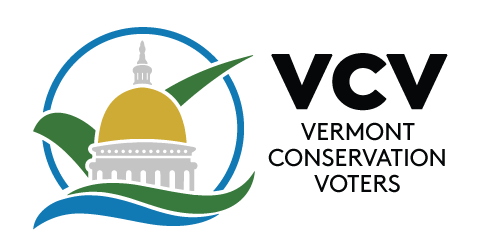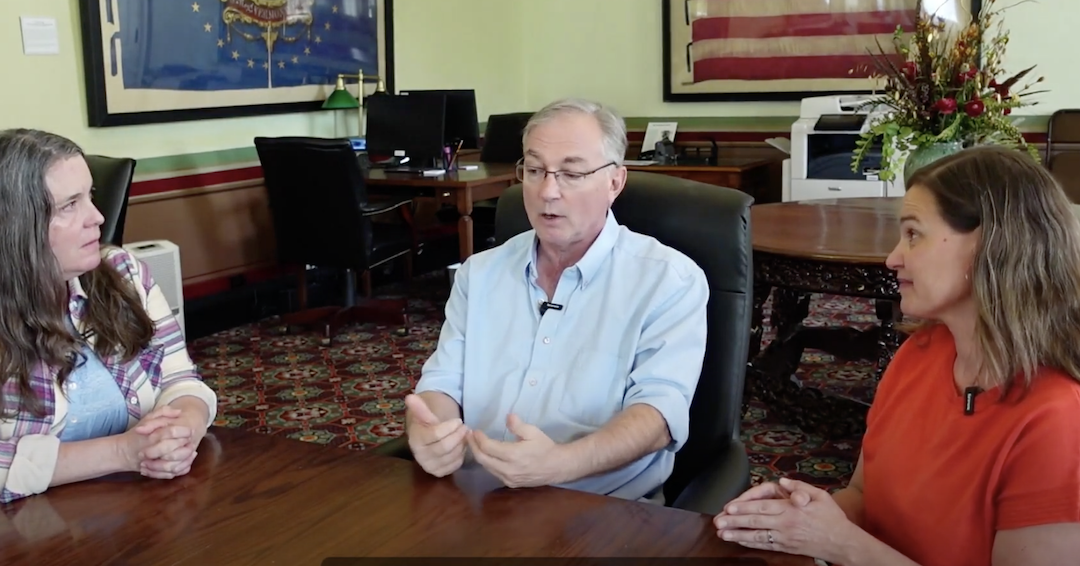This year, the Vermont Legislature worked hard to address the climate challenges we are experiencing. Flood safety, making Big Oil pay for climate disasters, modernizing Vermont’s renewable energy standard, allowing thermal energy networks, banning PFAS, protecting pollinators… Our legislators did A LOT.
On today’s Dispatch, we speak to Senate President Pro Tempore Phil Baruth (D-Burlington) to discuss the Senate’s focus on disaster resilience and climate solutions this year.
Today’s Episode
Over the past few weeks, the following bills have been sent to the Governor where he can choose to support the bill by signing it, oppose the bill by vetoing it, or just allow the bill to become law without his signature. So far the Governor has:
Signed:
Banning Toxic PFAS “Forever Chemicals” (S.25) – This is a nation-leading step to protect communities by banning per- and polyfluorinated substances (PFAS) and other toxic chemicals from personal care products and menstrual products, and banning PFAS from apparel, cookware, artificial turf, and children’s products. Governor Scott signed this legislation into law late last week.
Let pass into law:
Establishing a Climate Superfund (S.259) – This bill will create a Climate Superfund to ensure that the world’s largest fossil fuel companies are required to pay their fair share of the cost of disaster cleanup, and help invest in climate resilience and adaptation measures here in Vermont. Governor Scott allowed this legislation to become law without his signature late last week.
Mitigating Flooding and Building Climate Resilience (S.213) – The Flood Safety Act will take important steps to reduce flood risk across Vermont by protecting and enhancing the state’s wetlands, limiting development in river corridors, and improving dam safety. Governor Scott allowed this legislation to become law without his signature late last week.
Vetoed:
Modernizing Vermont’s Renewable Energy Standard (H.289) – This bill would put Vermont on track to achieve 100% renewable electricity by 2035 across all the state’s utilities, and significantly increase the requirements for utilities to deploy new renewable energy built here in Vermont and in the region.
Protecting Pollinators from Harmful Pesticides (H.706) – This bill would phase out the use of neonicotinoid pesticides in Vermont. These harmful pesticides are applied to seeds that are widely used by farmers, despite research showing they provide little to no benefit. Instead, there is substantial evidence that they are contributing to pollinator loss and pose potential risks to public health.
Call to Action
The Legislature will reconvene on June 17th, where they’ll vote on whether or not to override gubernatorial vetoes. It’s a high bar – it takes a two-thirds majority of vote in support for the bill to be enacted. Between now and then, it will be essential that legislators hear from their constituents about the importance of overriding the governor’s veto and enacting these bills into law.
Find contact information for your legislators and let them know you support overriding the vetoes of the Modernized Renewable Energy Standard (H.289) and Protecting Pollinators from Harmful Pesticides (H.706)!

